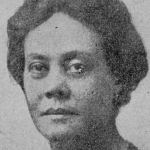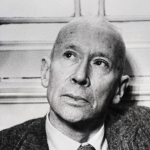Orphan in my first years, I early learnt
To make my heart suffice itself, and seek
Support and sympathy in its own depths.
Well, read my cheek, and watch my eye, —
Too strictly school'd are they
One secret of my soul to show,
One hidden thought betray.
I never knew the time my heart
Look'd freely from my brow;
It once was check'd by timidness,
'Tis taught by caution now.
I live among the cold, the false,
And I must seem like them;
And such I am, for I am false
As those I most condemn.
I teach my lip its sweetest smile,
My tongue its softest tone;
I borrow others' likeness, till
Almost I lose my own.
I pass through flattery's gilded sieve,
Whatever I would say;
In social life, all, like the blind,
Must learn to feel their way.
I check my thoughts like curbed steeds
That struggle with the rein;
I bid my feelings sleep, like wrecks
In the unfathom'd main.
I hear them speak of love, the deep.
The true, and mock the name;
Mock at all high and early truth,
And I too do the same.
I hear them tell some touching tale,
I swallow down the tear;
I hear them name some generous deed,
And I have learnt to sneer.
I hear the spiritual, the kind,
The pure, but named in mirth;
Till all of good, ay, even hope,
Seems exiled from our earth.
And one fear, withering ridicule,
Is all that I can dread;
A sword hung by a single hair
For ever o'er the head.
We bow to a most servile faith,
In a most servile fear;
While none among us dares to say
What none will choose to hear.
And if we dream of loftier thoughts,
In weakness they are gone;
And indolence and vanity
Rivet our fetters on.
Surely I was not born for this!
I feel a loftier mood
Of generous impulse, high resolve,
Steal o'er my solitude!
I gaze upon the thousand stars
That fill the midnight sky;
And wish, so passionately wish,
A light like theirs on high.
I have such eagerness of hope
To benefit my kind;
And feel as if immortal power
Were given to my mind.
I think on that eternal fame,
The sun of earthly gloom.
Which makes the gloriousness of death,
The future of the tomb —
That earthly future, the faint sign
Of a more heavenly one;
— A step, a word, a voice, a look, —
Alas! my dream is done!
And earth, and earth's debasing stain,
Again is on my soul;
And I am but a nameless part
Of a most worthless whole.
Why write I this? because my heart
Towards the future springs,
That future where it loves to soar
On more than eagle wings.
The present, it is but a speck
In that eternal time,
My spirit knows its clime.
Oh! not myself, — for what am I? —
The worthless and the weak,
Whose every thought of self should raise
A blush to burn my cheek.
And made my heart a shrine;
For what, although alloy'd, debased,
Is in itself divine.
I am myself but a vile link
Amid life's weary chain;
But I have spoken hallow'd words,
O do not say in vain!
My first, my last, my only wish,
Say will my charmed chords
Wake to the morning light of fame,
And breathe again my words?
Will the young maiden, when her tears
Alone in moonlight shine —
Tears for the absent and the loved —
Murmur some song of mine?
Will the pale youth by his dim lamp,
Himself a dying flame,
From many an antique scroll beside,
Choose that which bears my name?
Let music make less terrible
The silence of the dead;
I care not, so my spirit last
Long after life has fled.


















Comment form: